
AIMBE Professional Impact Awards
AIMBE will present up to one award for each Professional Impact Award category annually at the AIMBE Annual Event, recognizing Fellows that have significantly contributed to improving the professional environment of the medical and biological engineering fields. Nominations for the Professional Impact Awards will be solicited by AIMBE in the following categories:
Mentoring: including supporting the growth and development of students, post-docs, and early career faculty; motivating and empowering mentees to pursue and achieve their goals, and helping mentees build a network of professional relationships to strengthen their careers.
Diversity, Equity, and Inclusion: including contributing to the advancement of underrepresented minorities in medical and biological engineering, diversifying the biomedical sciences and biomedical engineering workforce, advancing equity and inclusion among students or work colleagues, providing underrepresented students with early exposure to the profession recruiting, retaining and promoting diverse talent; and improving the culture of inclusion.
Leadership: including serving the medical and biological engineering field over a sustained period of time to solve one or more problems that impact patients, serving on committees, boards of directors, or other governance positions; participating on peer review panels, advisory commissions, or study groups.
Education: including advancing new teaching methods, curriculum, or training techniques; contributing to changes and improvements on campus, academic life, and/or relationships of students and faculty; promoting and/or advancing STEM.
Nomination Procedures
Both nominators and nominees must be AIMBE Fellows and in good standing with the organization. Nominators shall provide the name, contact details, maximum 30-word citation, and 500-word description of the candidate’s contributions meriting the award, as well as a letter of support. Citations, as well as the 500-word statement, must specially address accomplishments pertinent ONLY to the impact of the award for which the candidate is nominated. Nominations should provide specific metrics to support the candidate’s impact (personal anecdotes will not be considered). The letter of support must be from an individual with direct knowledge of the impact for which the candidate is nominated. Nominators should also submit a CV (5 pages max) that highlights the nominee’s accomplishments that are relevant to the award category.
Professional Impact Award nominations are sought in these categories: Mentoring, Advancing Diversity, Education, and Leadership. Nominees will be considered on the basis of their impact to the field in these areas, engagement with AIMBE and professional societies, strength of endorsement from recommendation letters, and efforts to diversify/expand the field.
Individual recipients receiving an award will be recognized at the Awards Banquet during AIMBE’s Annual Meeting and must be present to accept their award.
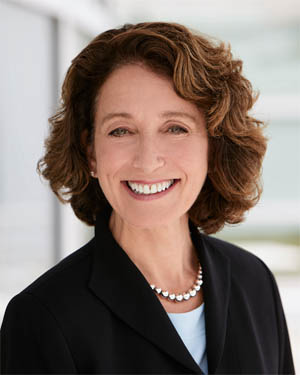
2025 PROFESSIONAL IMPACT AWARD – LEADERSHIP
Susan S. Margulies, Ph.D.
Georgia Research Alliance Eminent Scholar and Professor
Wallace H. Coulter Department of Biomedical Engineering
Georgia Institute of Technology and Emory University
For driving change that has improved access and success for women in engineering, launched new programs that reward innovation, and built partnerships across domains that transform pursuit of engineering research.
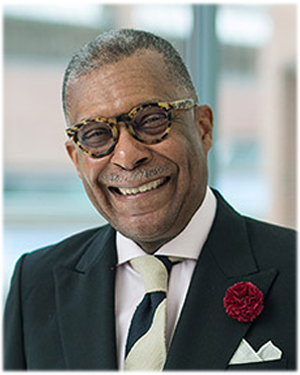
2025 PROFESSIONAL IMPACT AWARD – DIVERSITY, EQUITY AND INCLUSION
Andre L. Churchwell, MD
Professor of Medicine (Cardiology), Professor of Biomedical Engineering, Professor of Radiology and Radiological Sciences, Senior Associate Dean for Diversity Affairs
School of Medicine (Cardiology); School of Engineering; Office for Diversity Affairs
Vanderbilt University
For his national leadership in advancing diversity and inclusion in biomedical sciences, for championing underrepresented minorities in medical and engineering education, and for transforming institutional culture to one of belonging.
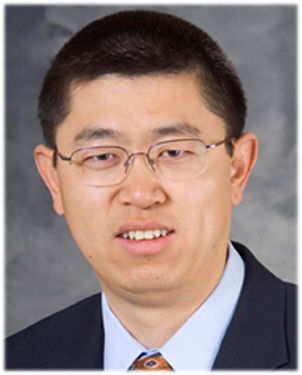
2025 PROFESSIONAL IMPACT AWARD – MENTORING
Weibo Cai, Ph.D.
Associate Professor, Villas Distinguished Achievement Professor
Departments of Radiology, Medical Physics, Biomedical Engineering
University of Wisconsin–Madison
For his international leadership and service in molecular imaging, nuclear medicine, and nanobiotechnology, and exceptional mentorship in training the next generation of scientists for both academia and industry globally.
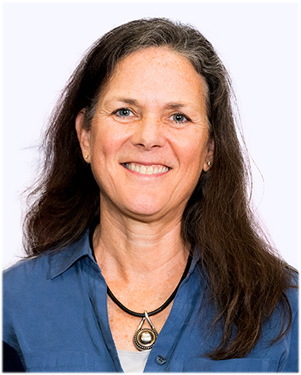
2025 PROFESSIONAL IMPACT AWARD – EDUCATION
Maria Oden, Ph.D.
Teaching Professor
Department of Bioengineering
Rice University
For her transformative leadership in biomedical engineering design education and global health innovation, advancing student-driven designs that impact healthcare solutions in low-resource settings and inspire future leaders in biomedical engineering.
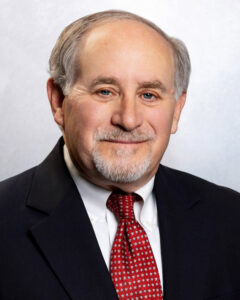
2024 PROFESSIONAL IMPACT AWARD – LEADERSHIP
Frederick J. Schoen, MD, Ph.D.
Professor
Pathology
Brigham and Women’s Hospital and Harvard Medical School
For outstanding leadership through impactful research and medical device development, innovative education and mentoring, stewardship of clinical and biomedical engineering programs, professional society governance, and significant books and other publications.
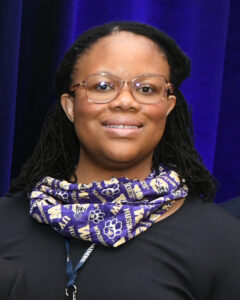
2024 PROFESSIONAL IMPACT AWARD – DIVERSITY, EQUITY AND INCLUSION
Princess Imoukhuede, Ph.D.
Hunter and Dorothy Simpson Endowed Chair and Professor
Department of Bioengineering
University of Washington
For her outstanding leadership and advocacy on Diversity, Equity, Inclusion, and Social Justice issues as they relate to students, faculty, staff, and professional bioengineers.
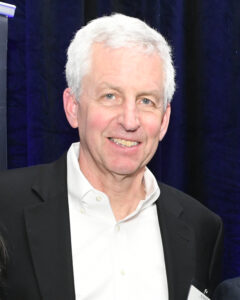
2024 PROFESSIONAL IMPACT AWARD – MENTORING
William E. Bentley, Ph.D.
Robert E. Fischell Distinguished Chair of Engineering
Inaugural Director of the Robert E. Fischell Institute for Biomedical Devices
Director of the Maryland Technology Enterprise Institute
Department of Chemical and Biomolecular Engineering
University of Maryland, College Park & Institute for Bioscience and Biotechnology Research
For outstanding contributions to biological and biomedical engineering by inspiring creativity and leadership among graduate students, postdocs, and early career faculty.
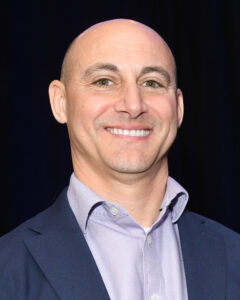
2024 PROFESSIONAL IMPACT AWARD – EDUCATION
Joseph Tranquillo, Ph.D.
Professor Director of the Teaching and Learning Center
Biomedical Engineering
Bucknell University
For leadership in biomedical engineering education, including publishing five textbooks, supporting faculty development across the nation, and teaching a generation of students at Bucknell.
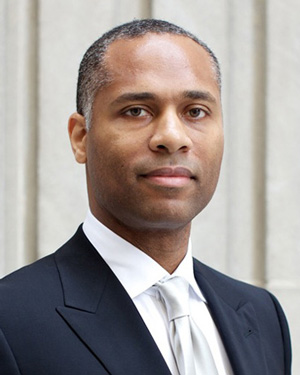
2023 PROFESSIONAL IMPACT AWARD – LEADERSHIP
Guillermo Ameer, Sc.D.
Daniel Hale Williams Professor
Biomedical Engineering and Surgery
Northwestern University
For exceptional leadership in advancing biomaterial science and technology translation and promoting the field of regenerative engineering, diversity, and inclusion among national professional societies.
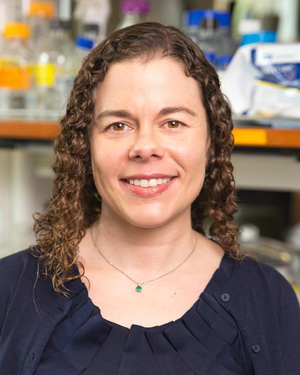
2023 PROFESSIONAL IMPACT AWARD – DIVERSITY, EQUITY AND INCLUSION
Karen L. Christman, Ph.D.
Professor and Associate Dean
Department of Bioengineering
University of California, San Diego
For outstanding leadership in improving diversity, equity, and inclusion for students and faculty in engineering.
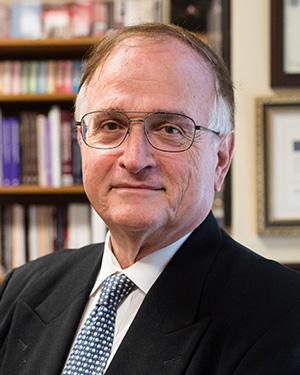
2023 PROFESSIONAL IMPACT AWARD – MENTORING
Nicholas A. Peppas, Sc.D.
Professor of Biomedical Engineering, Chemical Engineering and Pharmacy
Director, Institute for Biomaterials, Drug Delivery and Regenerative Medicine
Biomedical Engineering Department
The University of Texas at Austin
For his stellar impact on the field through outstanding mentoring of students and early career faculty.
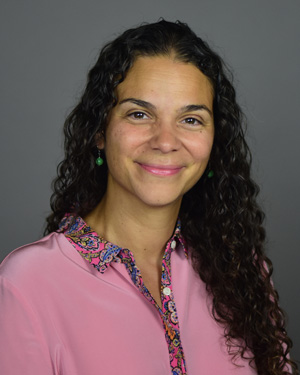
2023 PROFESSIONAL IMPACT AWARD – EDUCATION
Maribel Vazquez, Sc.D.
Professor and Principal Investigator
Biomedical Engineering
Rutgers, The State University of New Jersey
For her sustained and innovative inclusion of health disparities and its public health impacts into Biomedical Engineering undergraduate curricula, training and outreach.
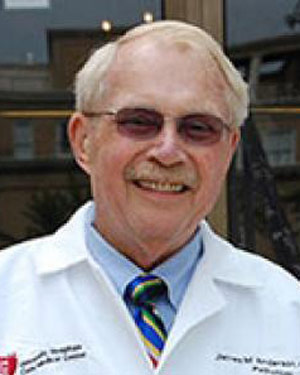
2022 PROFESSIONAL IMPACT AWARD – LEADERSHIP
James M. Anderson, MD, Ph.D.
Distinguished University Professor, Department of Pathology, School of Medicine
Member, Developmental Therapeutics Program, Case Comprehensive Cancer Center
Case Western Reserve University
For outstanding leadership through activities involving impactful research, journal editorship, professional society governance and guidance, and regulatory standards development.
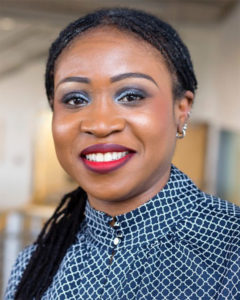
2022 PROFESSIONAL IMPACT AWARD – DIVERSITY, EQUITY AND INCLUSION
Lola Eniola-Adefeso, Ph.D.
University Diversity and Social Transformation Professor of Chemical Engineering, Miller Faculty Scholar, and Associate Dean for Graduate & Professional Education
University of Michigan Ann Arbor
For innovative and bold leadership toward addressing diversity and inclusion in the field of biomedical engineering.
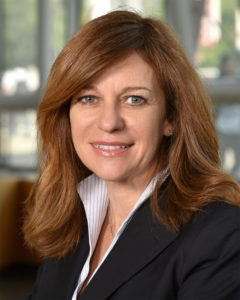
2022 PROFESSIONAL IMPACT AWARD – MENTORING
Michele Marcolongo, Ph.D., P.E.
Drosdick Endowed Dean, College of Engineering
Villanova University
For her national leadership in mentoring faculty in professional development, entrepreneurship, and promotion preparation.
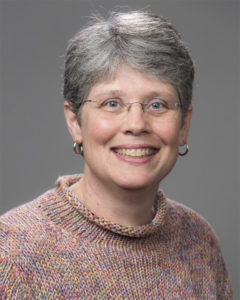
2022 PROFESSIONAL IMPACT AWARD – EDUCATION
Ann Saterbak, Ph.D.
Professor of the Practice in the Department of Biomedical Engineering and Director of First-Year Engineering
Duke University
For outstanding contributions to biomedical engineering teaching, and national leadership and service to the biomedical engineering education community.
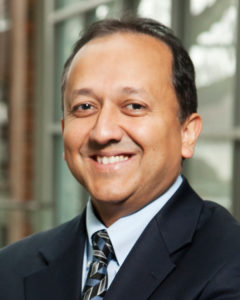
2021 Professional Impact Award – Education
Rashid Bashir, Ph.D.
Executive Associate Dean and Chief Diversity Officer, Carle Illinois College of Medicine
Grainger Distinguished Chair in Engineering
College of Engineering Dean, University of Illinois at Urbana-Champaign
For leadership in bioengineering education, diagnostic technology development, and a new engineering-based medical school curriculum.
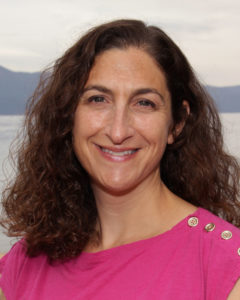
2021 Professional Impact Award – Mentoring
Naomi C. Chesler, Ph.D.
Director, Edwards Lifesciences Center for Advanced Cardiovascular Technology, and Professor, University of California, Irvine
For her national leadership in mentoring of women faculty in engineering.
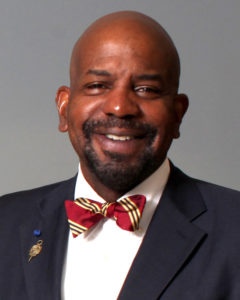
2021 Professional Impact Award – Leadership
Cato T. Laurencin, MD, Ph.D.
University Professor, and Albert & Wilda Van Dusen Distinguished Professor of Orthopaedic Surgery, University of Connecticut Health Center
For his leadership in regenerative engineering and medicine through the dissemination of science, advocacy for diversity and inclusion, and contributions to numerous professional organizations worldwide.
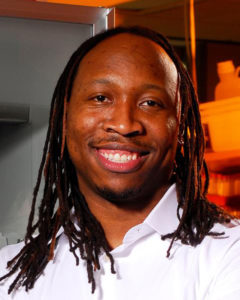
2021 Professional Impact Award – Diversity
Manu O. Platt, Ph.D.
Diversity Director, STC on Emergent Behaviors of Integrated Cellular Systems (EBICS)
GRA Distinguished Scholar
Associate Professor, Georgia Institute of Technology and Emory University
For visionary leadership and an established track record of improving diversity and inclusion in BME and changing the culture for historically under-represented students and faculty across the nation.
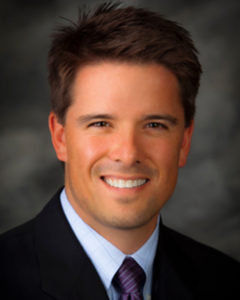
2020 Professional Impact Award – Leadership
Walt Baxter, Ph.D.
Senior Principal Scientist and Bakken Fellow
Medtronic Neuromodulation
For his outstanding track record of leadership initiatives that advance corporate scientific interests and simultaneously strengthen the biomedical ecosystem, writ large, on behalf of patients.
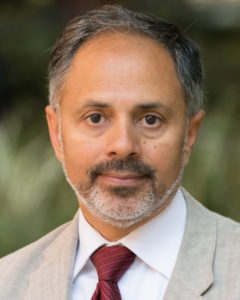
2020 Professional Impact Award – Advocacy
Sam Sanjiv Gambhir, M.D., Ph.D.
Chair of Radiology, Stanford University
For his advocacy for science and engineering, radiology, and leadership in promoting innovation in health care technology and infrastructure for the benefit of all patients.
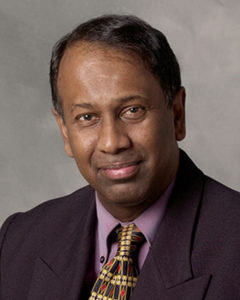
2020 Professional Impact Award – Education
Ajit P. Yoganathan, Ph.D.
Associate Chair of Health Sciences and Technology, Georgia Institute of Technology
For education in development of biomedical engineering graduate and translational educational programs, clinical education techniques and standards development.
 AIMBE
AIMBE
